PRACTICAL, ECONOMIC AND TECHNICAL SOLUTIONS USING ALL ENERGY AND POWER OPTIONS WILL LEAD TO DECARBONISATION
Rinnai’s Chris Goggin reviews the Government’s ‘Powering Up Britain’ document & strategy which aims for NetZero by 2050.
“Powering Up Britain” is the Government’s own manifesto for a national strategy to achieve cheaper and more secure fuel supplies, decarbonisation and the goal of NetZero by 2050. ‘Powering Up Britain’ sets out the department’s approach to energy security and net zero and acts as an introduction to Powering Up Britain: Energy Security Plan &Powering Up Britain: Net Zero Growth Plan, both of which are complementary and should be read alongside each other. These documents were produced after High Court action by what can be neutrally described as the ‘Green lobby’ – a combination of interested climate groups. Mainstream media have taken their own views on this. For example the BBC reported this by saying, “The government was forced to release a new net zero strategy after the High Court ruled that the original plan did not contain enough detail, and breached the government’s legal obligations under the Climate Change Act.”
This latest government released document has attracted criticism from academics and environmentalists alike who stipulate this newly produced centralized literature amounts to a watering down of previous NetZero announcements and aims.
To maintain national fuel provision and decarbonise domestic energy supplies the UK government says it will shift away from fossil fuels and continue to construct renewable energy installations such as wind, wave and solar whilst increasing nuclear capacity.
Hydrogen production and distribution will also become increasingly more relevant as the government is keen on widespread CCUS (Carbon Capture Underground Storage used for blue hydrogen manufacturing) and green hydrogen development – both forms of hydrogen can be used for industrial and potentially property heat usage.
The new plan also sets out the following objectives:
- insulating 300,000 of the UK’s worst insulated homes as part of a £1bn energy efficiency programme
- aiming to remove between 20m and 30m tonnes of carbon from the atmosphere by 2030.
- providing more than £350m for electric vehicle charging facilities
- aiming to produce 25% of the UK’s electricity through nuclear power by 2050
- speeding up the planning process for wind farms and solar energy sites

A main ambition of the “Powering Up Britain” strategy focuses on reducing electrical costs to be the lowest in Europe by 2035. UK energy strategists believe that clean and sustainable electrification is presently the safest way to ensure lower customer costs and carbon emissions.
We believe that manufacturers must adapt and offer the marketplace the variety and quality of products needed to achieve lower carbon through practical, technically and economically feasible pathways today.
Rinnai has adapted the range of low carbon commercial and domestic products to include technologies that support electrification. We now offer a range of products and systems powered by electric, natural gas, hydrogen-blends, BioLPG, rDME, Solar & Heat Pumps – all commercial heating & hot water systems.
For example, all Rinnai electric storage water heaters are designed with flexibility in mind. All units are fitted with between one and six titanium elements. The Kw rating within the Infinit-E range is scalable from 12kw to 72kw ensuring that our appliances are suitable for a wide variety of applications.
The overall Rinnai range is branded as H1, H2 & H3.
H1 – Hydrogen, BioLPG – water heaters & boilers.
H2 – Hybrid Systems – Heat Pumps and Solar Thermal.
H3– Heat Pumps – Low GWP.
Rinnai understands the green direction of current and future energy needs as well as the cost-of-living crises which has seen fuel costs rise to exorbitant levels. Not only has Rinnai adapted their current range to include hydrogen ready technology and products that accept renewable power such as solar and hybrid heat pumps.
Energy options will continue to expand across the UK and Rinnai will be constantly preparing products and technology that instantly provides the customer with reduced emissions and costs for their commercial or domestic property. Rinnai’s H3 range will continue to meet current customer demand through technological innovation that creates a healthier way of living.
 Creating a Healthier Way of Living
Creating a Healthier Way of Living
CLICK HERE TO VISIT RINNAI UK
CLICK HERE to email Rinnai UK
CLICK HERE For more information on the RINNAI product range visit
RINNAI’S H3 DECARBONISATION OFFERS PATHWAYS & CUSTOMER COST REDUCTIONS
FOR COMMERCIAL, DOMESTIC AND OFF-GRID HEATING & HOT WATER DELIVERY
Rinnai’s H3 range of decarbonising products include hydrogen / BioLPG ready technology, hybrid systems, and a wide range of LOW GWP heat pumps and solar thermal. Also, within Rinnai’s H3 range is Infinity hydrogen blend ready and BioLPG ready continuous flow water heaters which are stacked with a multitude of features that ensure long life, robust & durable use, customer satisfaction and product efficiency.
Rinnai’s range of decarbonising products – H1/H2/H3 – consists of heat pump, solar, hydrogen in any configuration, hybrid formats for either residential or commercial applications. Rinnai’s H3 range of products offer contractors, consultants and end users a range of efficient, robust and affordable decarbonising appliances which create practical, economic and technically feasible solutions. The range covers all forms of fuels and appliances currently available – electric, gas, hydrogen, BioLPG, rDME solar thermal, low GWP heat pumps and electric water heaters.
Rinnai H1 continuous water heaters and boilers offer practical and economic decarbonization delivered through technological innovation in hydrogen and renewable liquid gas ready technology.
Rinnai’s H1 option is centred on hydrogen, as it is anticipated that clean hydrogen fuels will become internationally energy market-relevant in the future; Rinnai water heaters are hydrogen 20% blends ready and include the world’s first 100% hydrogen-ready hot water heating technology.
Rinnai H2 – Decarbonization simplified with renewable gas-ready units, Solar Thermal and Heat Pump Hybrids. Rinnai H2 is designed to introduce a practical and low-cost option which may suit specific sites and enable multiple decarbonisation pathways with the addition of high performance.
Rinnai H3 – Low-GWP heat pump technology made easy – Rinnai heat pumps are available for domestic and commercial usage with an extensive range of 4 – 115kW appliances.
Rinnai’s H3 heat pumps utilise R32 refrigerant and have favourable COP and SCOP.
Rinnai is a world leading manufacturer of hot water heaters and produces over two million units a year, operating on each of the five continents. The brand has gained an established reputation for producing products that offer high performance, cost efficiency and extended working lives.
Rinnai’s commercial and domestic continuous flow water heaters offer a limitless supply of instantaneous temperature controlled hot water and all units are designed to align with present and future energy sources. Rinnai condensing water heaters accept either existing fuel or hydrogen gas blends. Rinnai units are also suited for off-grid customers who require LPG and BioLPG or rDME.
Rinnai products are UKCA certified, A-rated water efficiency, accessed through multiple fuel options and are available for purchase 24/7, 365 days a year. Any unit can be delivered to any UK site within 24 hours. Rinnai offer carbon and cost comparison services that will calculate financial and carbon savings made when investing in a Rinnai system. Rinnai also provide a system design service that will suggest an appropriate system for the property in question. Rinnai offer comprehensive training courses and technical support in all aspects of the water heating industry including detailed CPD’s. More information can be found on Rinnai’s website and its “Help Me Choose” webpage.
CLICK HERE TO VISIT RINNAI UK


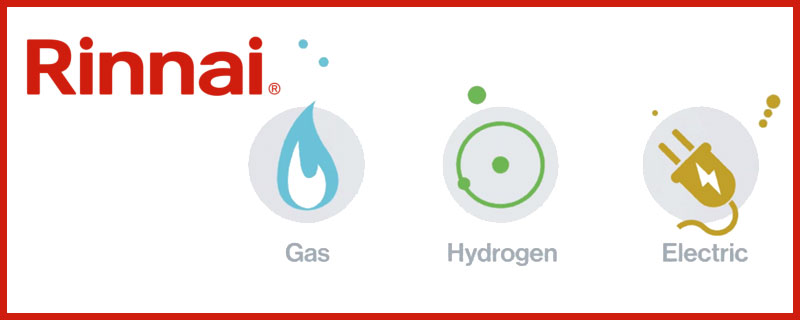
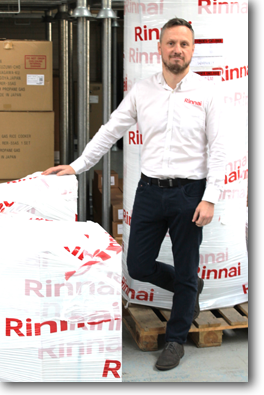

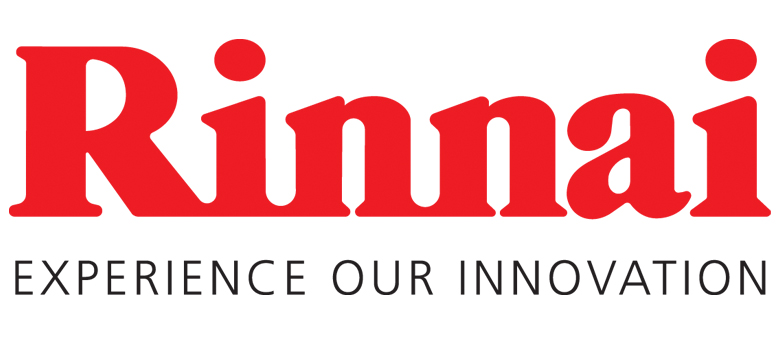



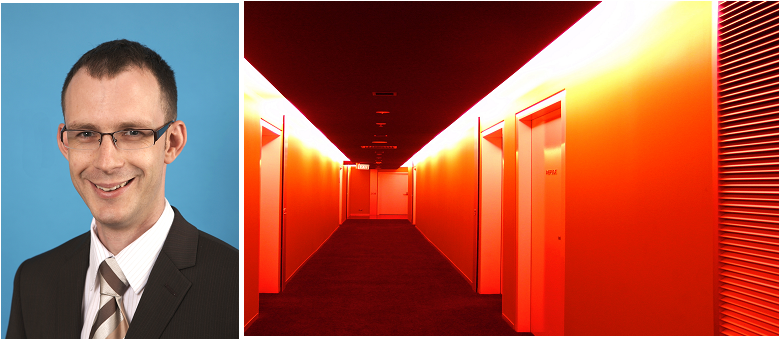


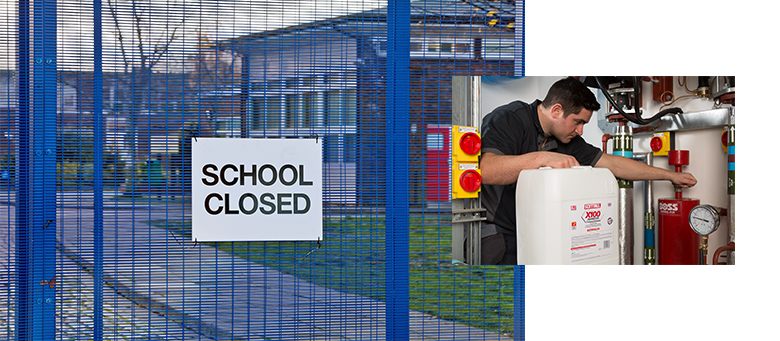




Leave a Reply
Want to join the discussion?Feel free to contribute!